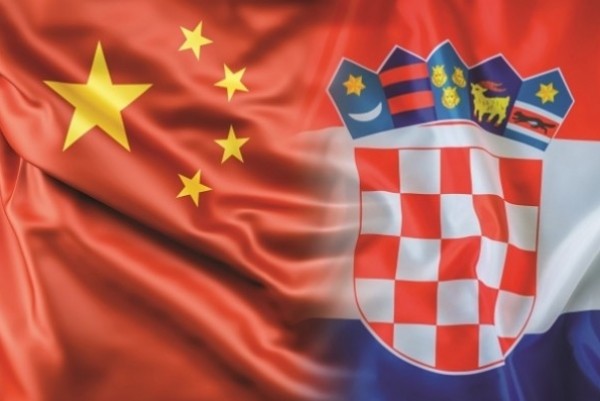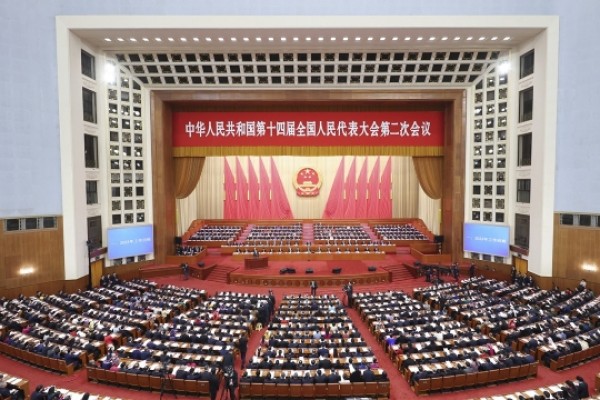| Croatia has big opportunities in hosting the 16+1 meeting | |

| Author: CSEBA / SEEbiz / Hina |
| 14th July 2018 |
| ZAGREB - Croatia will host a summit meeting of 16 Central and Eastern European countries and China in 2019 and the Croatian Foreign and European Affairs Ministry sees it as a huge opportunity for strengthening the overall relations with China. |
|
These relations could notably improve on economic issues, including the development of infrastructure, tourism and SMEs, the ministry's State Secretary Zdravka Busic said in an interview with Hina. The 16+1 format encompasses a great number of activities, and Croatia is now supposed to find its niche inside that format, said Busic, who is Croatia's coordinator for that initiative. Croatia has recognised possibilities of reinforcing its relations with China through that platform 16+1, she added. During the previous summit meeting of the 16+1 format in Bulgaria on 7 July, Prime Minister Andrej Plenkovic announced that his country would host the next summit meeting in 2019, and China's Prime Minister Li Keqiang will pay an official visit to Croatia. Underscoring the significance of the visit, Busic recalled that Plenkovic met his Chinese counterpart three times: during summit meetings in Riga, Budapest and Sofia. Commenting on the decision to award the hosting of the next 16+1 summit meeting to Croatia, Busic said that China, which has launched this initiative, has seen that "it has implemented a series of very successful activities" in its relations with Croatia over the past two years. Peljesac Bridge seen as a springboard for future bilateral projects One of the key items is the agreement on the construction of Peljesac Bridge, she said. The contract on the construction of HRK 2.08 billion Peljesac Bridge, to connect the southern Adriatic peninsula of Peljesac in Dubrovnik County with the mainland, and access roads, was signed on April 23 by the Hrvatske Ceste road operator and China Road and Bridge Corporation. Of the acceptable costs, 85% will be financed from EU funds. During the fourth ministerial conference between China and 16 Central and Eastern European countries in Ningbo, China, in June, a state secretary at the Ministry of Maritime Affairs, Transport and Infrastructure, Tomislav Mihotic, told Hina that the Peljesac Bridge was the first EU-funded project won by a Chinese company in a public tender. By winning the contract to build the Peljesac bridge, China has been given the opportunity to enter the EU market and participate in other major infrastructure projects to be largely financed with EU funds, Mihotic said then. The project to build the Peljesac Bridge is the synthesis of the idea behind the 16+1 initiative of eastern and central European countries and China, Plenkovic said at a news conference held after the Sofia summit meeting, pointing out that this is the biggest project of national importance, financed by the EU and built by a Chinese company. Apart from the future Peljesac Bridge, other infrastructure projects such as the modernisation of Croatian railway network and seaports are perceived as an opportunity for boosting economic cooperation between Croatia and China. Chinese companies can be included in the upgrading of Croatian seaports and in improving the railway connection from the seaport of Rijeka and Hungary. Media outlets have recently reported that a Chinese investor - according to some reports the Jiangxiong Hua company - planned to enter the ownership structure of the Port of Zadar and that it would initially invest HRK 215 million. Recently, Croatia's Koncar and the Chinese partners have signed a joint venture contract. Chinese companies are also eyeing other possible investments in Croatia. The 16+1 initiative is part of China's One Belt, One Road mega project, a sort of modern-day Silk Road considered to be one of the most ambitious projects in the world. The initiative's objective is to enhance cooperation between central and eastern European countries and China in trade and investments, transport connectivity, finance, agriculture, science and technology, health, education and culture. It includes 11 EU member states -- Bulgaria, Croatia, the Czech Republic, Estonia, Hungary, Latvia, Lithuania, Poland, Romania, Slovakia and Slovenia -- as well as 5 EU membership aspirants: Albania, Bosnia and Herzegovina, Macedonia, Montenegro and Serbia. The idea for a platform for cooperation between China and central and eastern European countries was born after their first economic-trade forum in 2011 in Budapest. Six years have passed since the first summit held in 2012 and subsequent summits were held in Bucharest, Belgrade, China, Riga and in Budapest in 2017. The Sofia summit was the seventh. The eighth summit meeting is likely to take place in Zagreb in the first half of 2019. Busic said that the event will be also a great opportunity for promoting Croatia in China whose media outlets will extensively cover the summit meeting. This can additionally facilitate tourist trade, she said. In 2017, the arrivals of Chinese visitors to Croatia soared by 50% compared to 2016. Throughout 2018, an estimated 200,000 Chinese guests are expected in Croatia. China is a strategically important market for Croatia's tourism In mid-May, the director of the Croatian National Tourism Board (HTZ), Kristjan Stanicic, who then attended the ITB China travel exhibition in Shanghai, told Hina that China was a strategically important market for Croatia's tourism, adding that the number of Chinese travelers to Croatia had risen by 40% this year. Croatia presented its tourism services at the ITB China as part of the large European Travel Commission stand. Stanicic said it was important to simplify the visa regime with China and introduce direct flights between Chinese and Croatian destinations. According to readers of the Chinese edition of the US-based Travel+Leisure magazine, Croatia has become the most sought-after European destination for Chinese tourists in 2018. "The award confirms Croatia's excellent potential as a tourist destination on a large and exceptionally important market, China. Furthermore, it also confirms our assessment and decision to strengthen our presence in China with additional promotional material and opening an HTZ office in Shanghai this year," Stanicic told Hina earlier this year. "Last year's results from that market are encouraging with a high increase in arrivals of 57% and almost 50% more overnight stays compared to 2016," he said. Dubrovnik will soon be the venue of a conference of tourism ministers of the 16+1 format, and the event is set to be held on 18-20 September. In late 2017, the Croatian Chamber of Commerce (HGK) opened a branch office in Shanghai.
|
 |
|
| 13th March 2024 | |
| China sets 2024 GDP growth target at around 5% | |
 |
|
| 9th February 2024 | |
| Happy Chinese New Year 2024 – Year of the Dragon | |